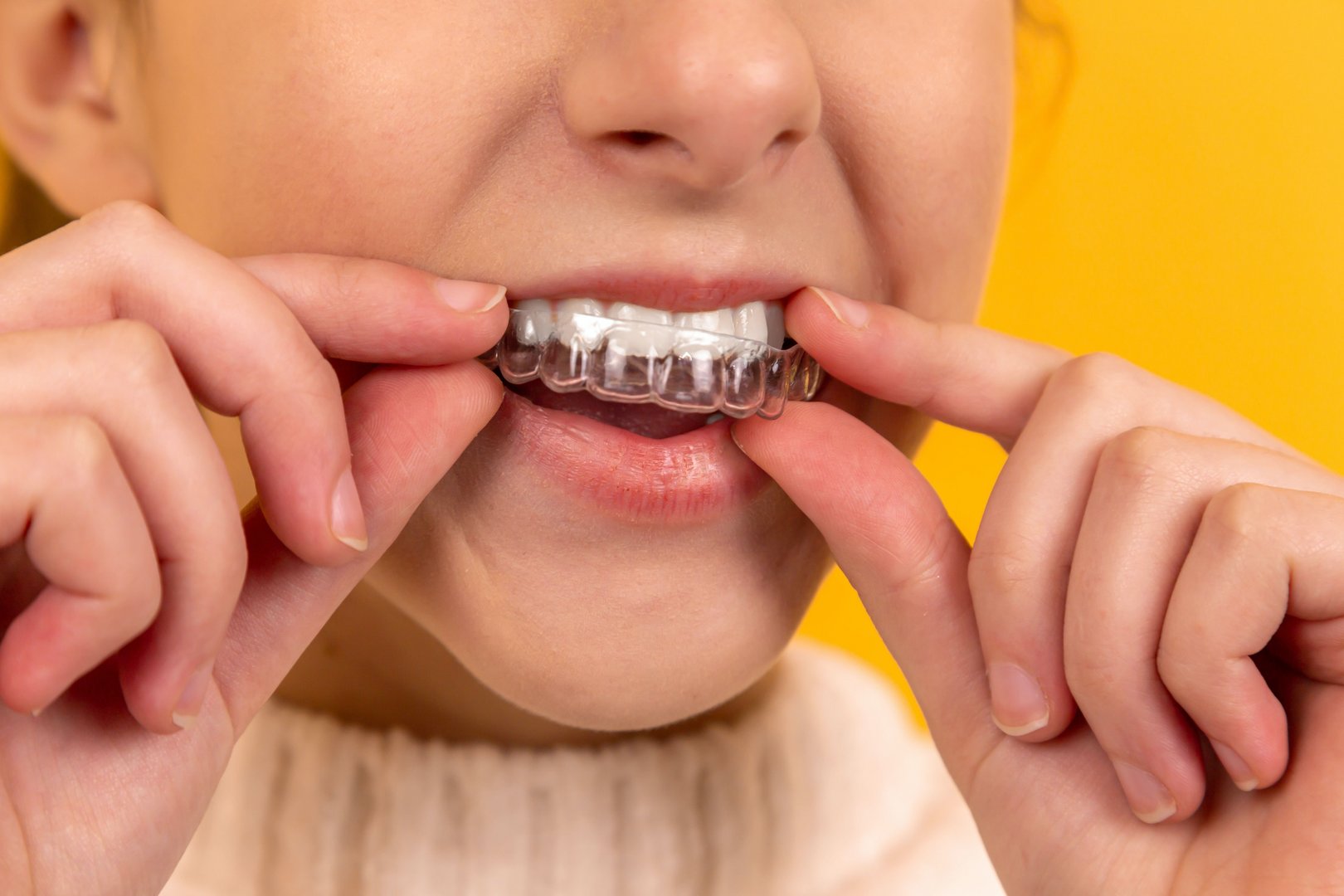There are few industries that have not felt the impacts of COVID. For the dental industry, the continuing need for infection control measures constrained the operation of in-person facilities during the outbreak. Concerns regarding the ability of dental professionals to provide consistent and timely appointments (as is required for effective treatment) persisted.
Physical access to dental services was severely hit by COVID, and this is likely to continue for some time. Thus, a need to provide some semblance of treatment forced the industry to innovate a new method of providing dental treatment: teledentistry. This allowed the pandemic-induced disruption to be combated with remote consultations; this, however, gave rise to popular alternatives to Invisalign that could be completed entirely from home.
Invisalign Competitors
ClearCorrect
Whilst not as established as Invisalign, having been founded in 2006, the two are comparable; they are renowned for providing reliable and quality results at a more cost-effective price. As is the case with Invisalign, a dentist will oversee and adapt each ClearCorrect patient’s plan as is necessary in order to fix a plethora of conditions.
There are many reasons to consider ClearCorrect as a viable alternative to Invisalign. The thinner plastic it uses means that they are less visible, and thus more aesthetically pleasing, than Invisalign. This is arguably a basis for asserting ClearCorrect aligners are more viable because they are more effective performing the job Invisalign innovated – a less visually intrusive appliance than traditional braces. Additionally, ClearCorrect treatment tends to be cheaper, this is because they charge dentists (and thus their patients) less.
That being said, ClearCorrect isn’t as established as Invisalign; who have been in the industry an additional nine years longer. Invisalign used to share the same plastic with ClearCorrect, but it recently upgraded to new materials that are widely considered more effective and durable.
Byte
Byte is a younger company and a new addition to the industry of clear aligners. Despite this, they have been able to acquire a solid reputation amongst their competitors as a provider of a solid and quality product. They have been able to provide faster treatment times of around 3-4 months than any of their competitors through innovation of their technology and procedures.
The primary benefit of choosing Byte is their extremely quick treatment time, but they bolster this with other benefits. Firstly, they offer the ‘Byte for Life’ guarantee; this ensures that a patient’s new smile is protected with new aligners (even if their teeth shift) for a lifetime.
On top of this, financing options are available for everyone regardless of their credit score, in an attempt to make the treatment more widely accessible. Plus, each patient is assigned their own personal dentist to oversee their journey and ensure their treatment is as effective and efficient as possible.
The most obvious drawback of choosing Byte is that they are young compared to other companies in the industry. This is compounded by the fact that they don’t provide any physical offices, so impressions must be taken from home – which can be quite difficult for patients.
SmileDirectClub
The best-known ‘at-home’ aligner brand, and first to rival Invisalign – SmileDirectClub is synonymous with convenient and effective treatment to many across the country. This is only heightened by their strong physical presence across the country (over 300+ ‘SmileShops’). Whilst their portfolio of successful results is more extensive than many of these other alternatives, it still pales in comparison to Invisalign.
SmileDirectClub offers premium convenience with the ability to skip the impression kit and quickly start treatment. This is made even easier with the 1000+ network of offices they utilise across the country that patients can make use of to start their treatment with a scan. Similar to Byte, they also offer night-time alternatives and provide financing without credit checks.
As is the case with many home aligners, they just cannot keep up with Invisalign in terms of the range of cases they can treat. It’s suitable for mild to moderate dental conditions, but anything more serious will require an Invisalign or even traditional braces. Their customer support also hasn’t received the best reviews over the years.
Closing Remarks
Please see Smile Prep’s website for a more detailed analysis of the full extent of Invisalign alternatives. This will be the most helpful resource in conclusively deciding which treatment process is most suited to your needs.







Click here to change your cookie preferences